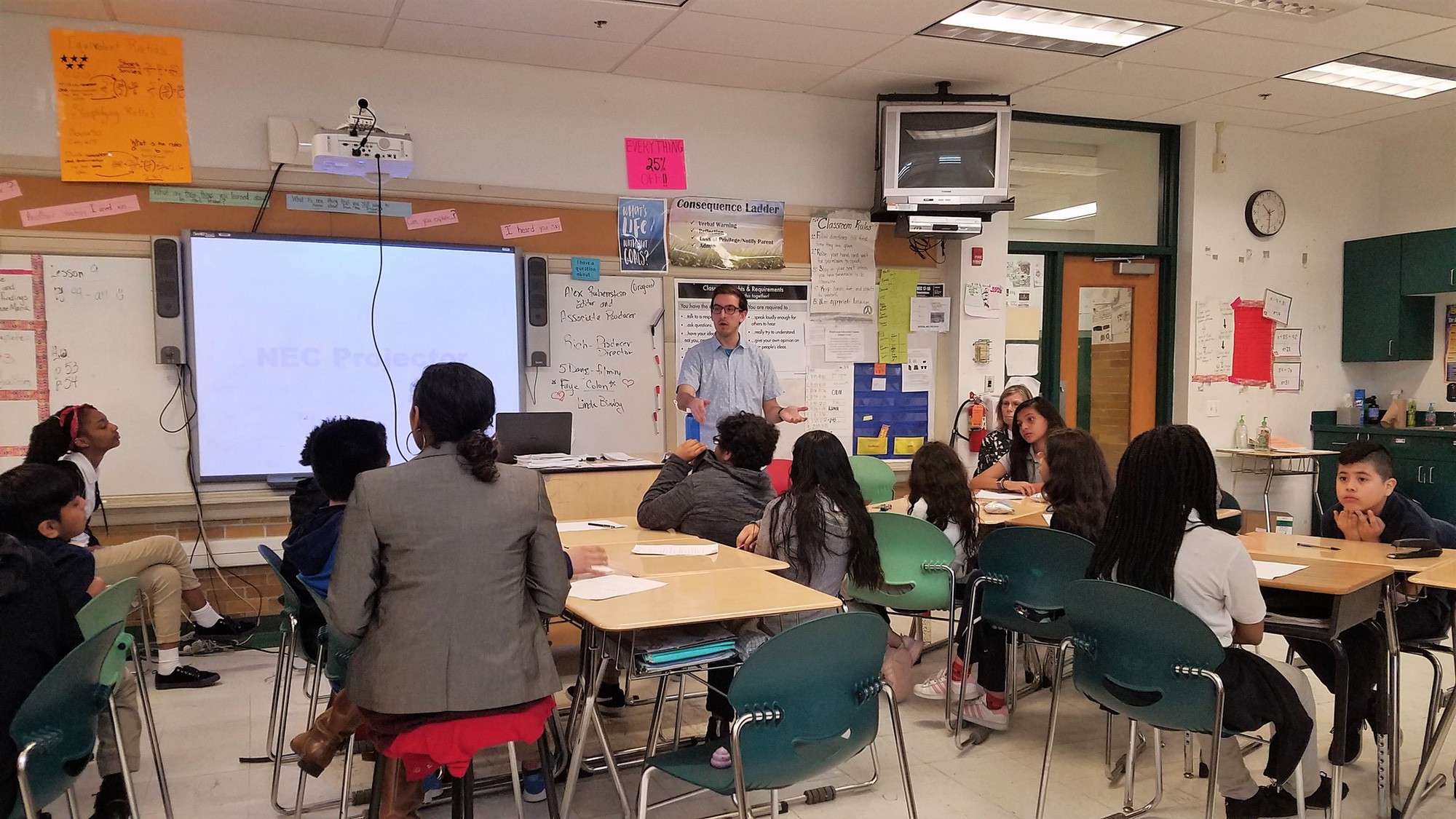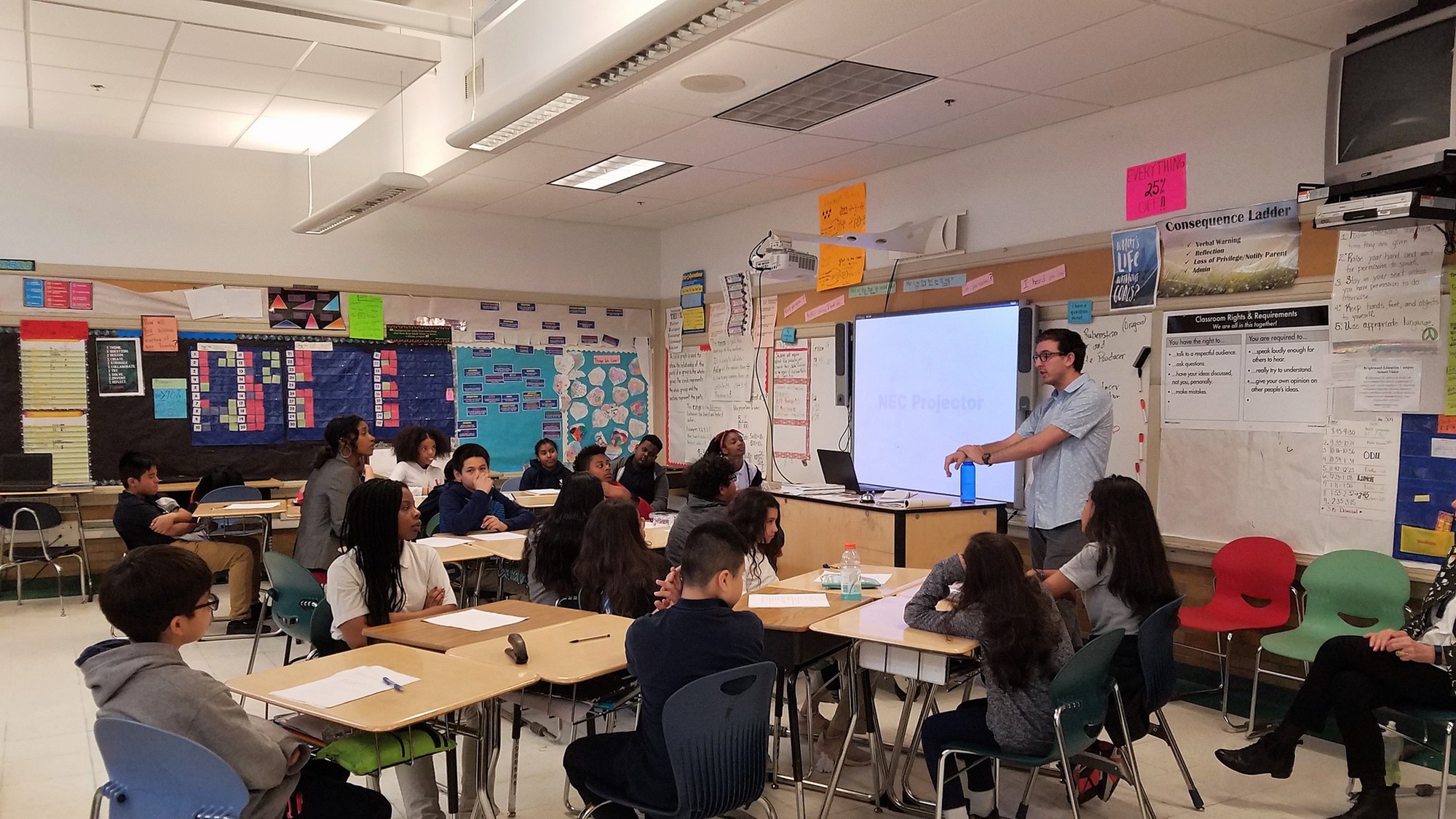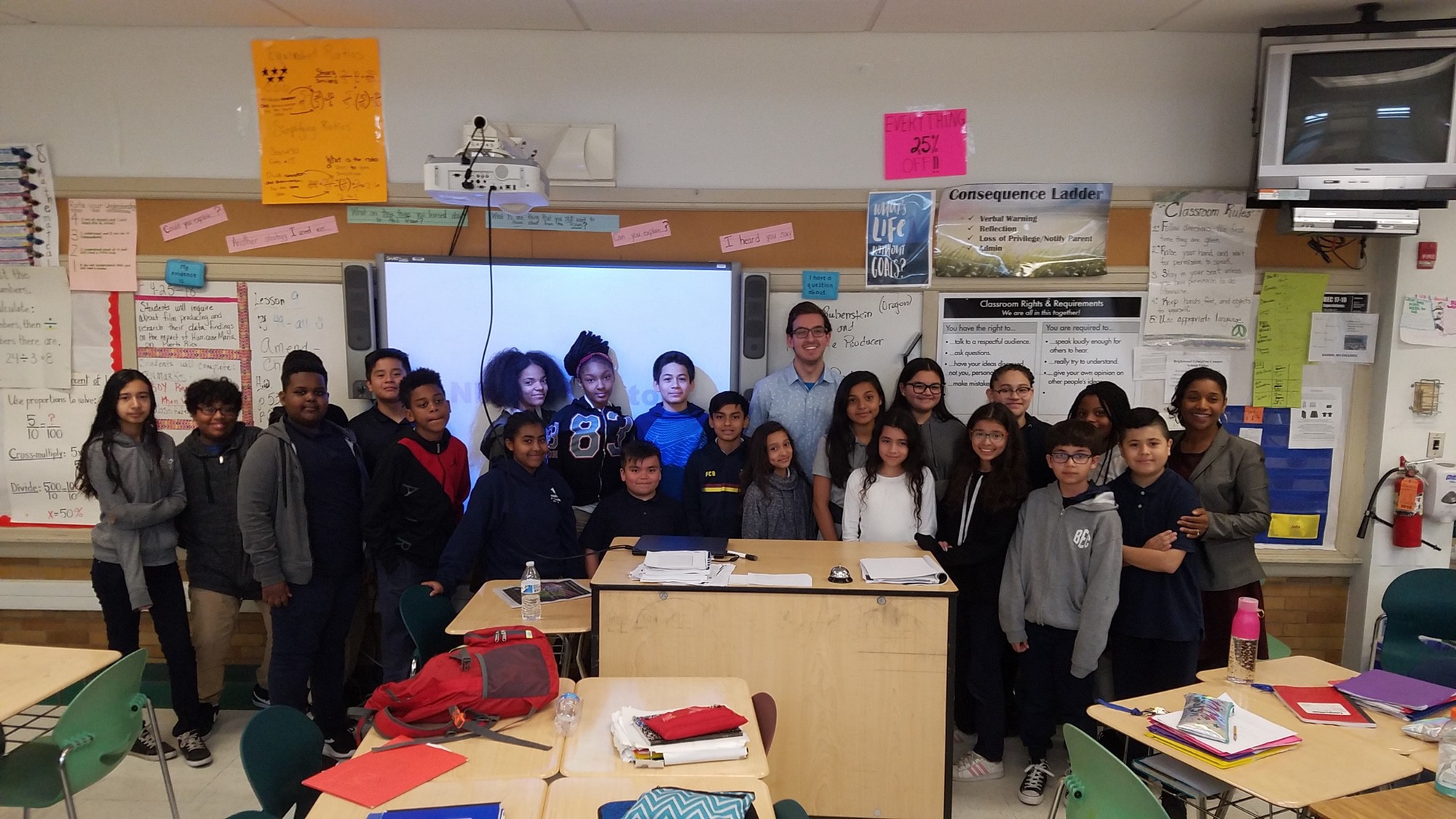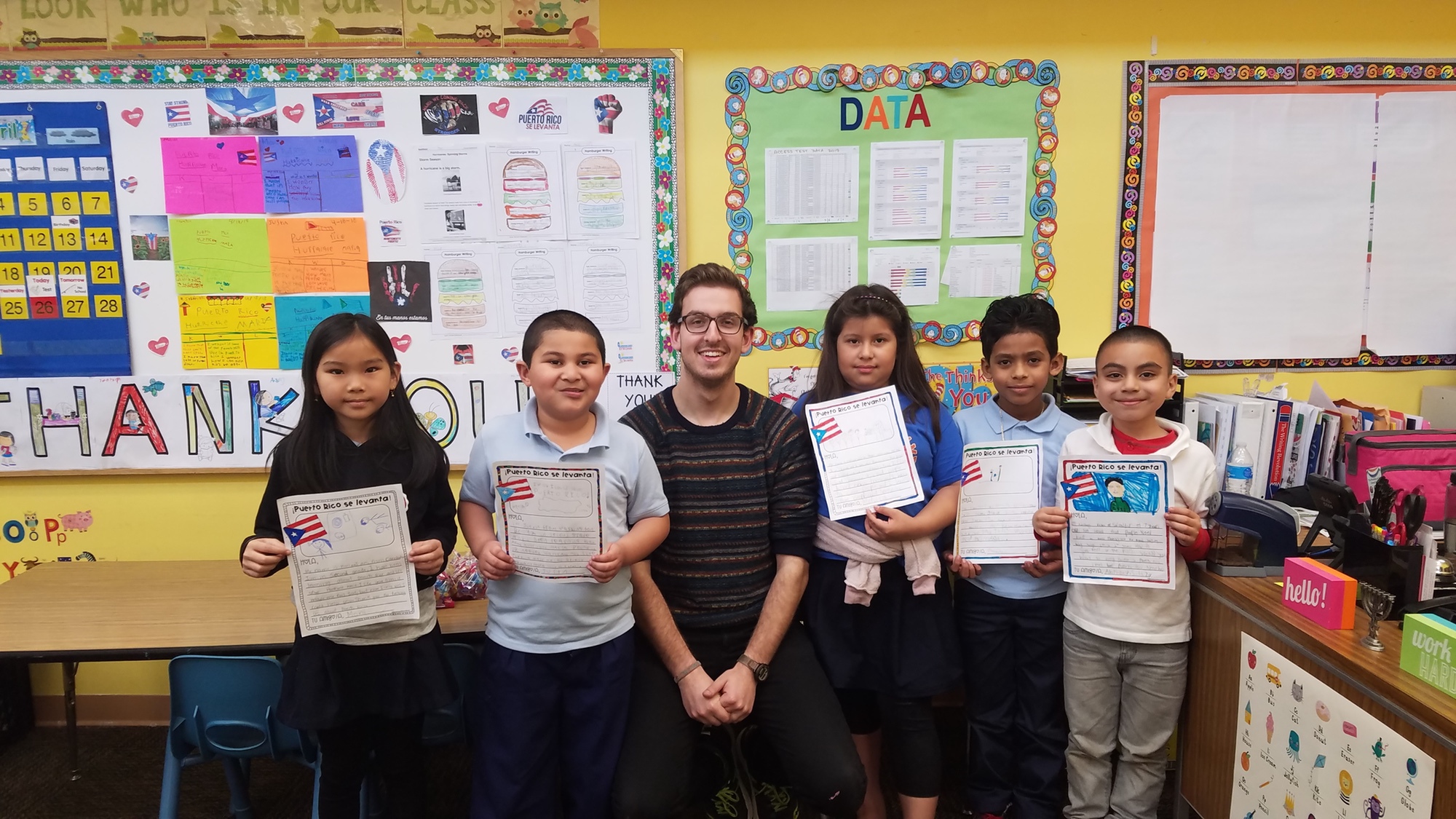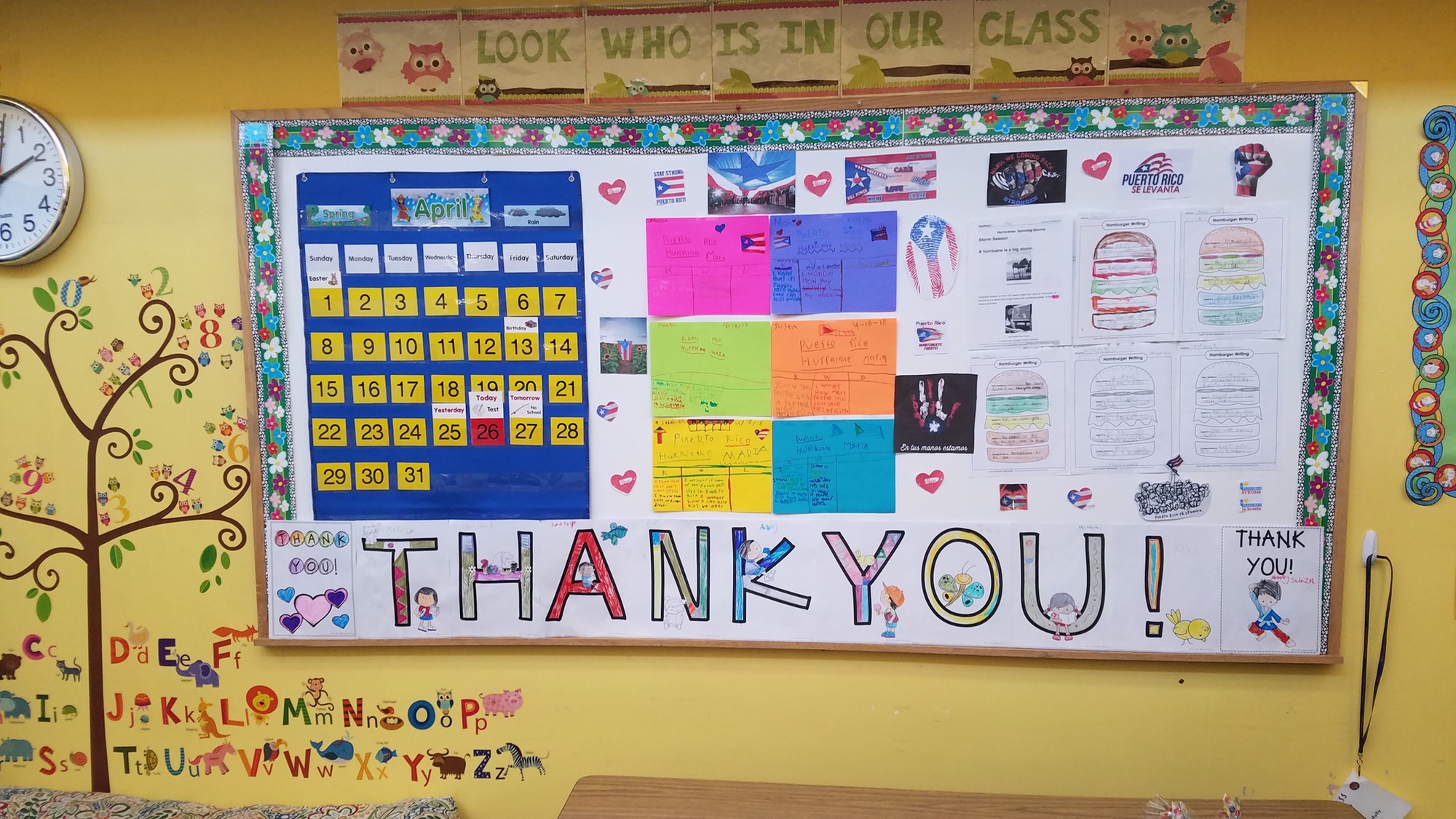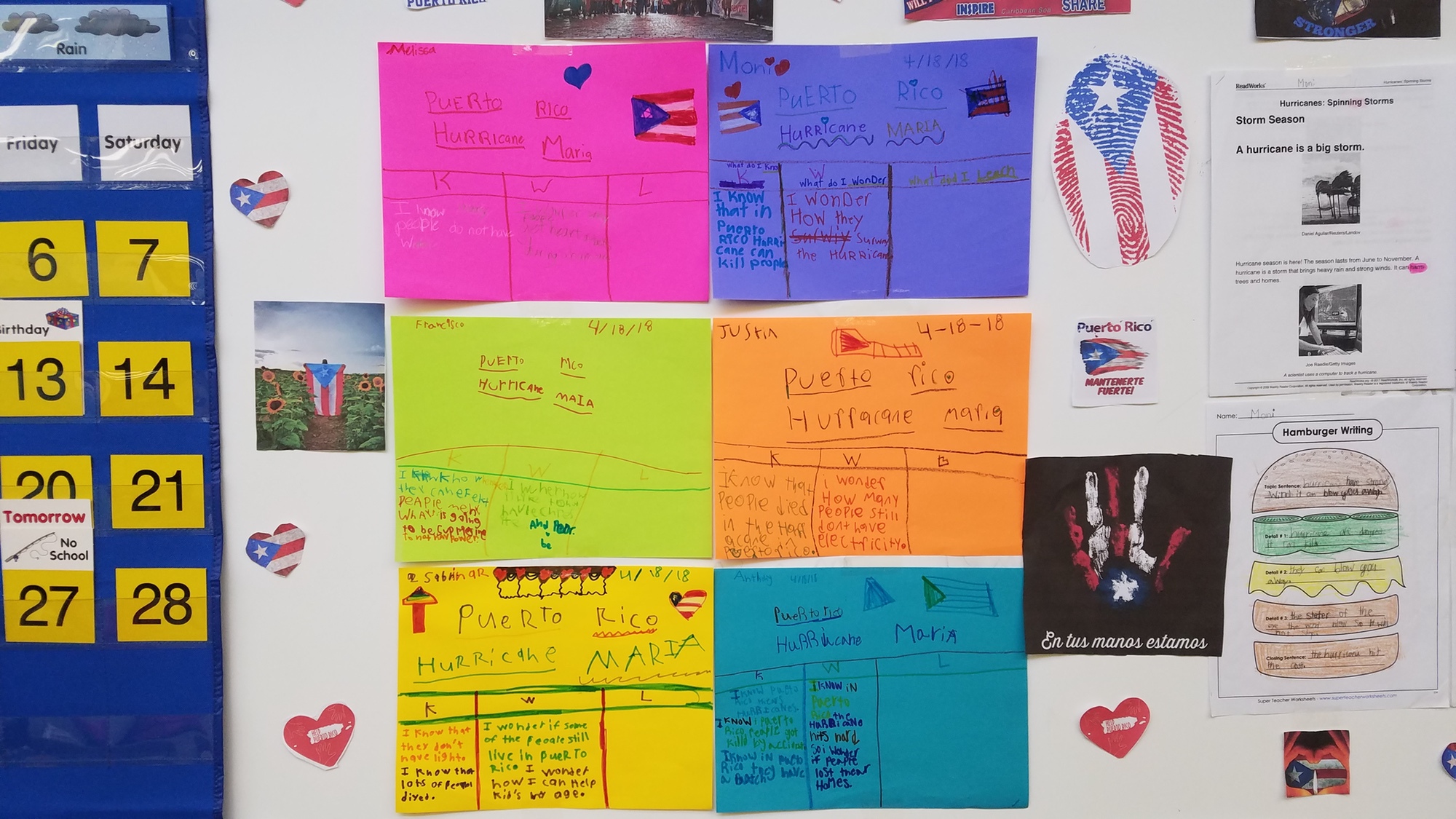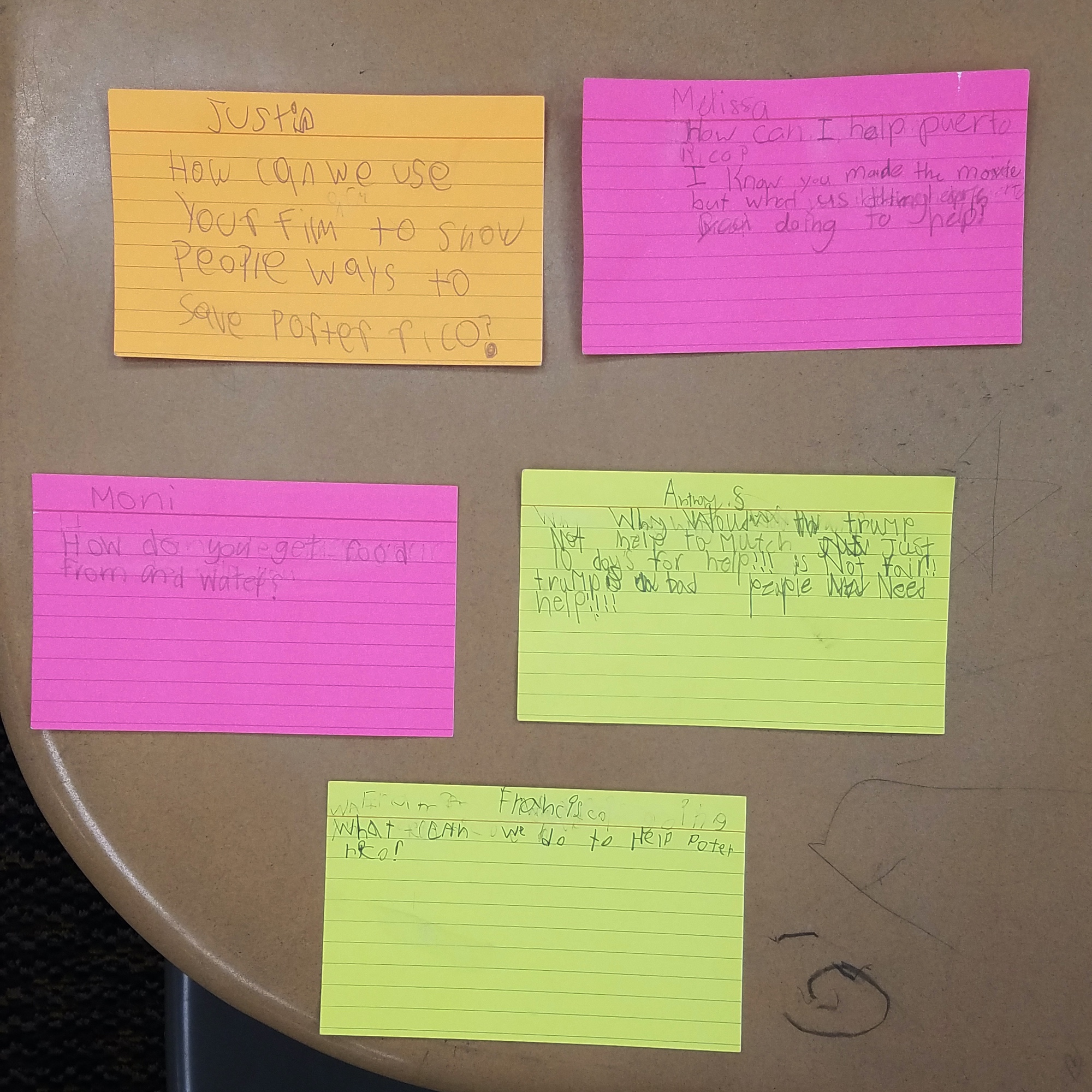Filmfest DC 2018 in D.C. Classrooms
Teaching for Change partnered with Filmfest DC: The Washington, DC International Film Festival for a seventh year to spread the word about the international film festival and to bring filmmakers into D.C. classrooms. Filmmakers from Queens in Training, Puerto Rico: Citizens in Peril, and The Foreigners' Home visited four classrooms. Students learned a lot from viewing the documentaries, preparing questions, and interacting with the filmmakers. (Read about prior year visits.)
Film Visits
The Foreigners Home at E.L. Haynes PCS
Directed by Rian Brown and Geoff Pingree
Students in Electra Bolotas’ art class at E.L. Haynes PCS (High School) were visited by Ford Morrison, producer and cinematographer of The Foreigner's Home, a documentary film that explores Toni Morrison’s artistic and intellectual vision through her 2006 exhibition at the Louvre of the same name. Bolata's students are working to develop superhero comic books addressing a range of topics including racism, gun violence, and climate change. Mr. Morrison showed students several works of art, clips from the film, and an interview with author Toni Morrison to help inform students on issues to consider when creating an artistic work. His main advice to students included finding a real-life anchor for inspiration and focusing on the development of characters within a story. Students were also given an opportunity to ask a variety of questions about Mr. Morrison’s inspiration for the film, the message he hopes his viewers receive after viewing the film, and his experience as a filmmaker.
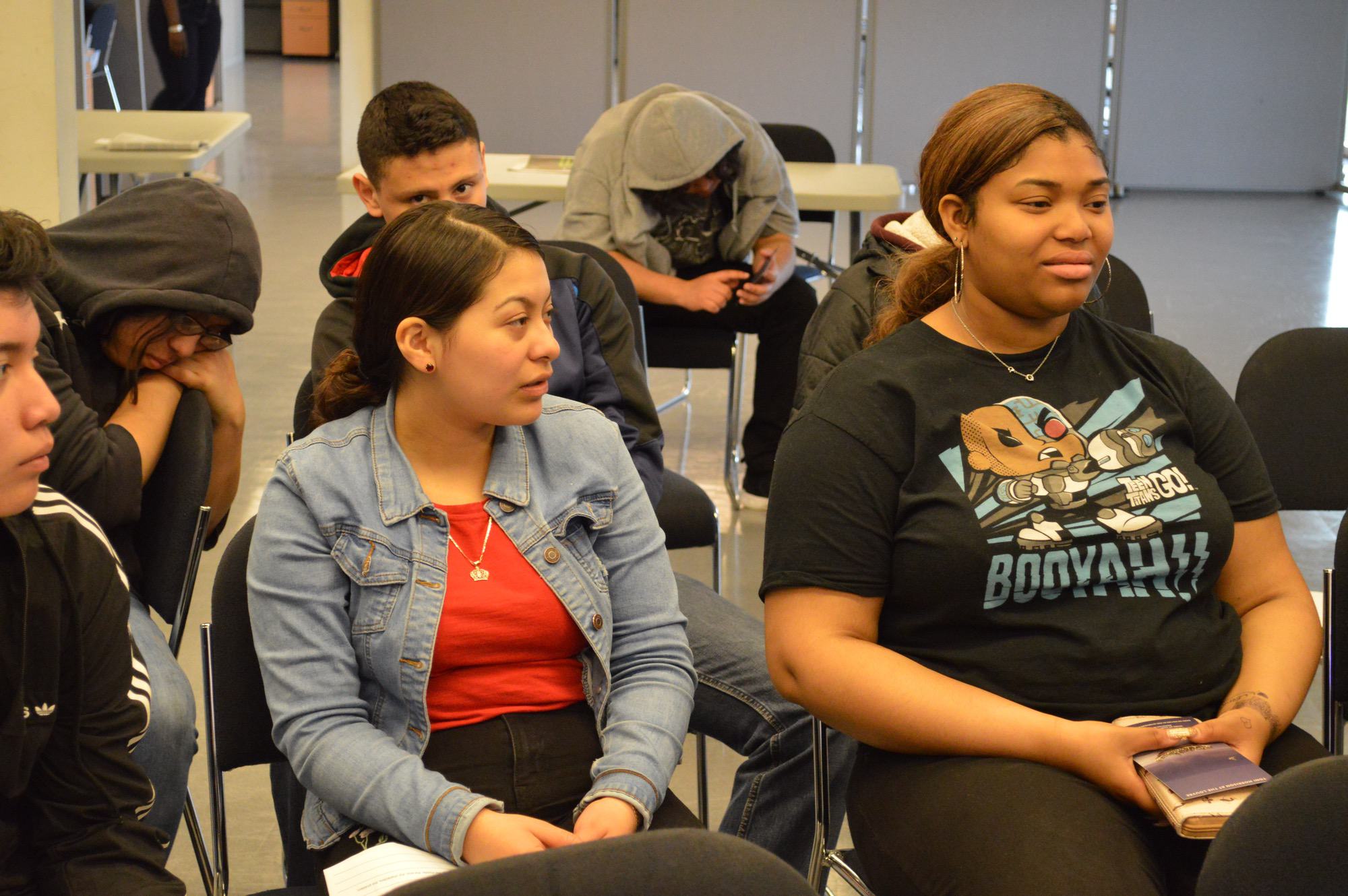
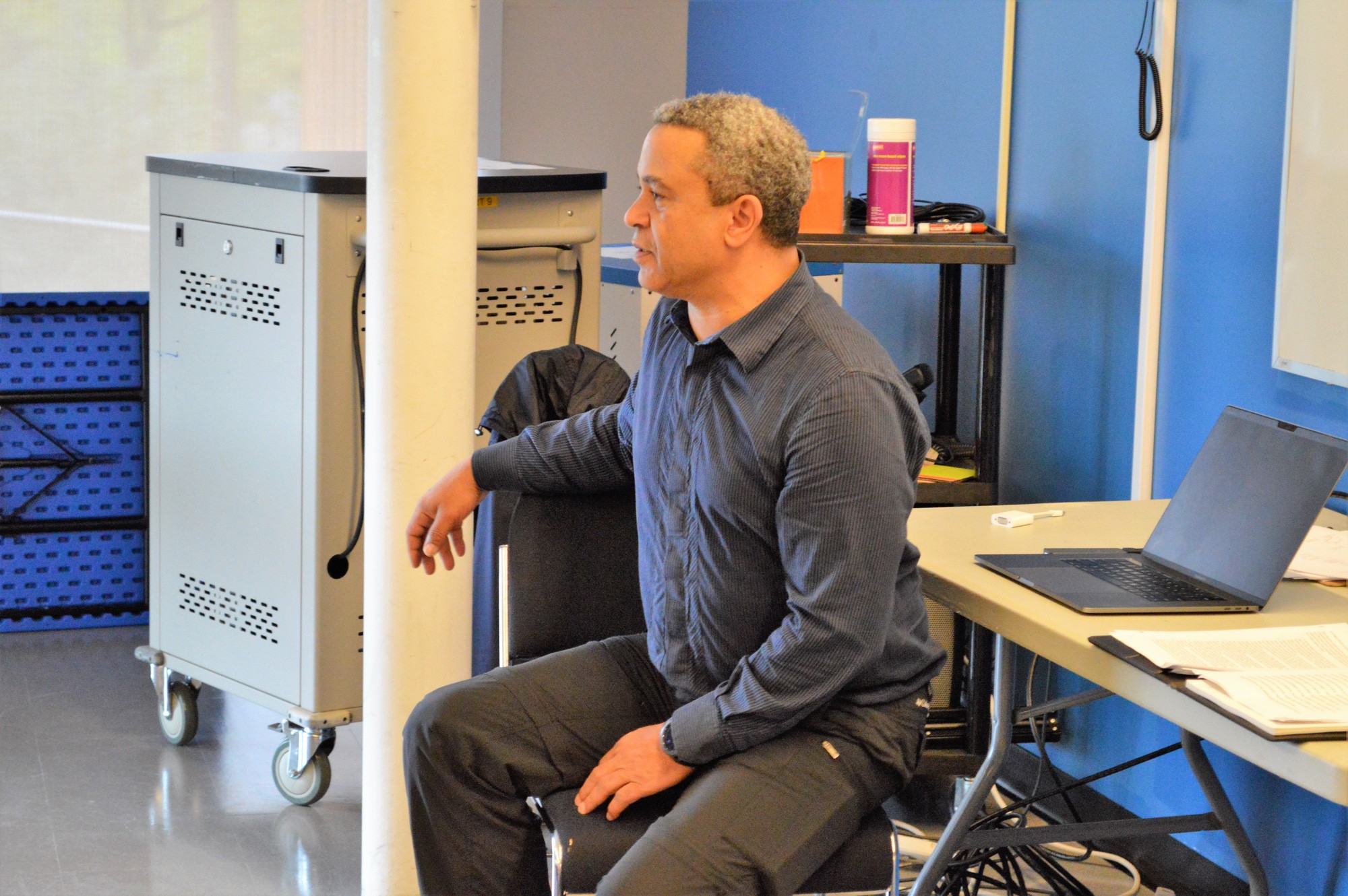
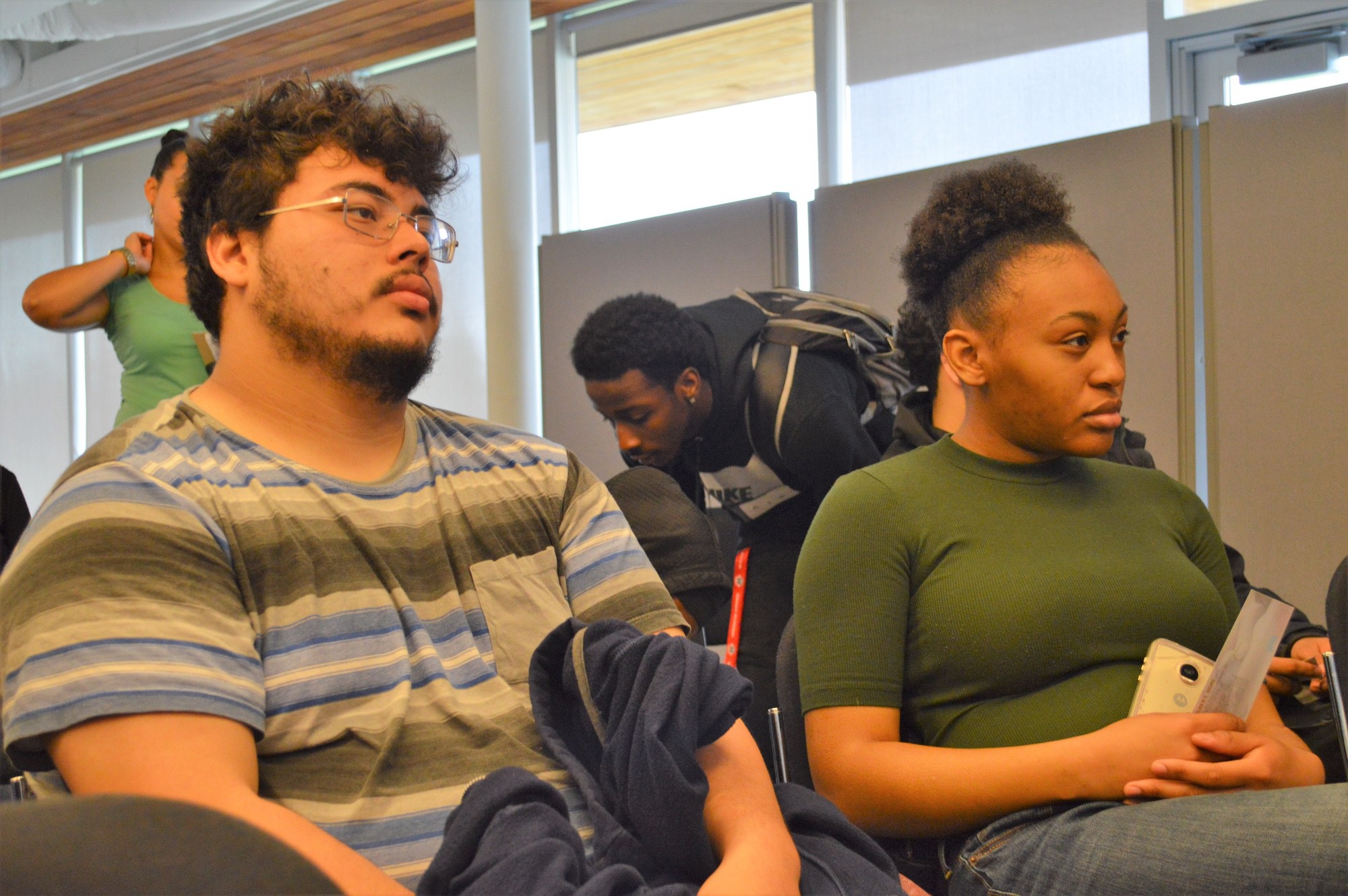
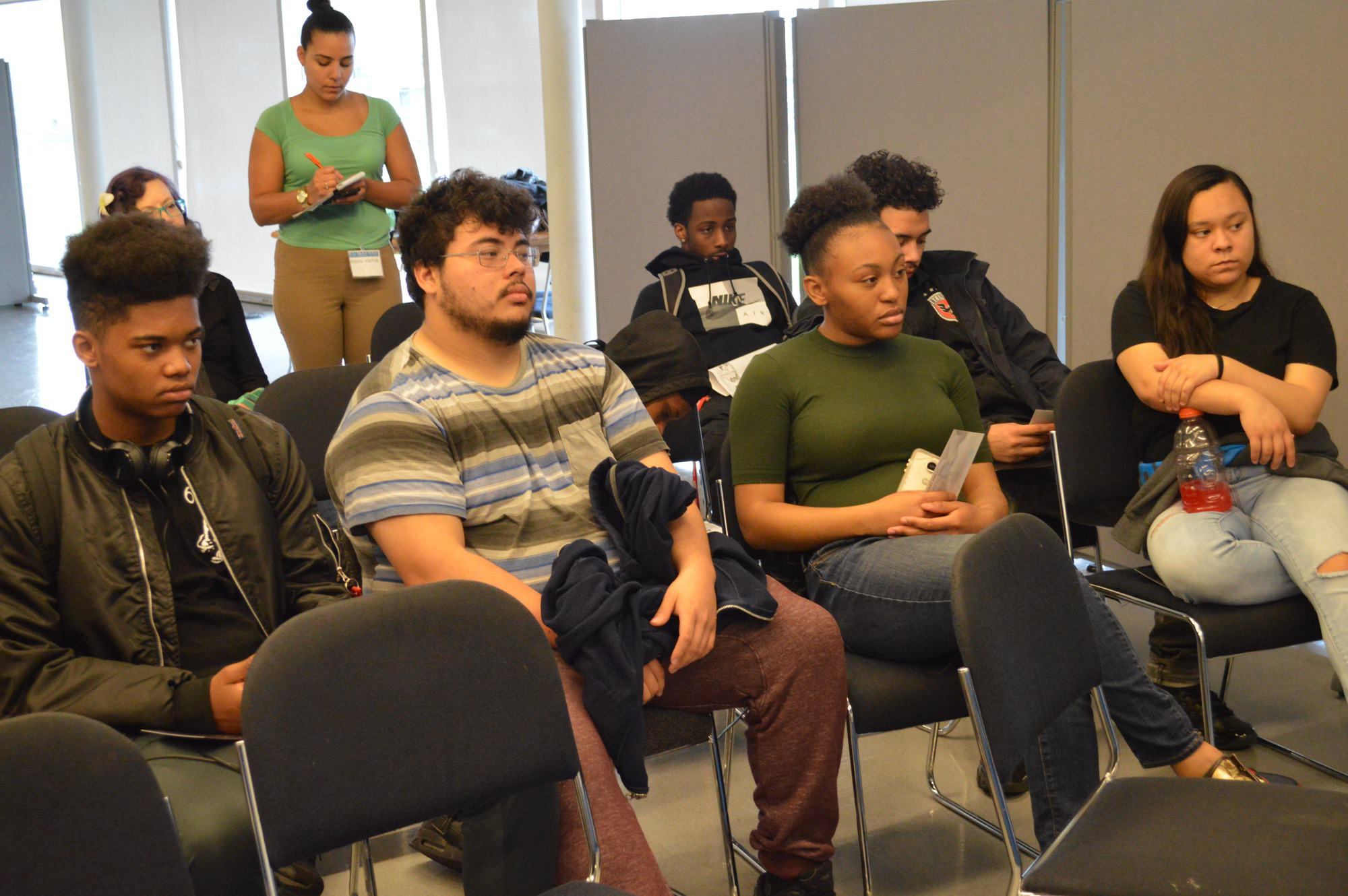
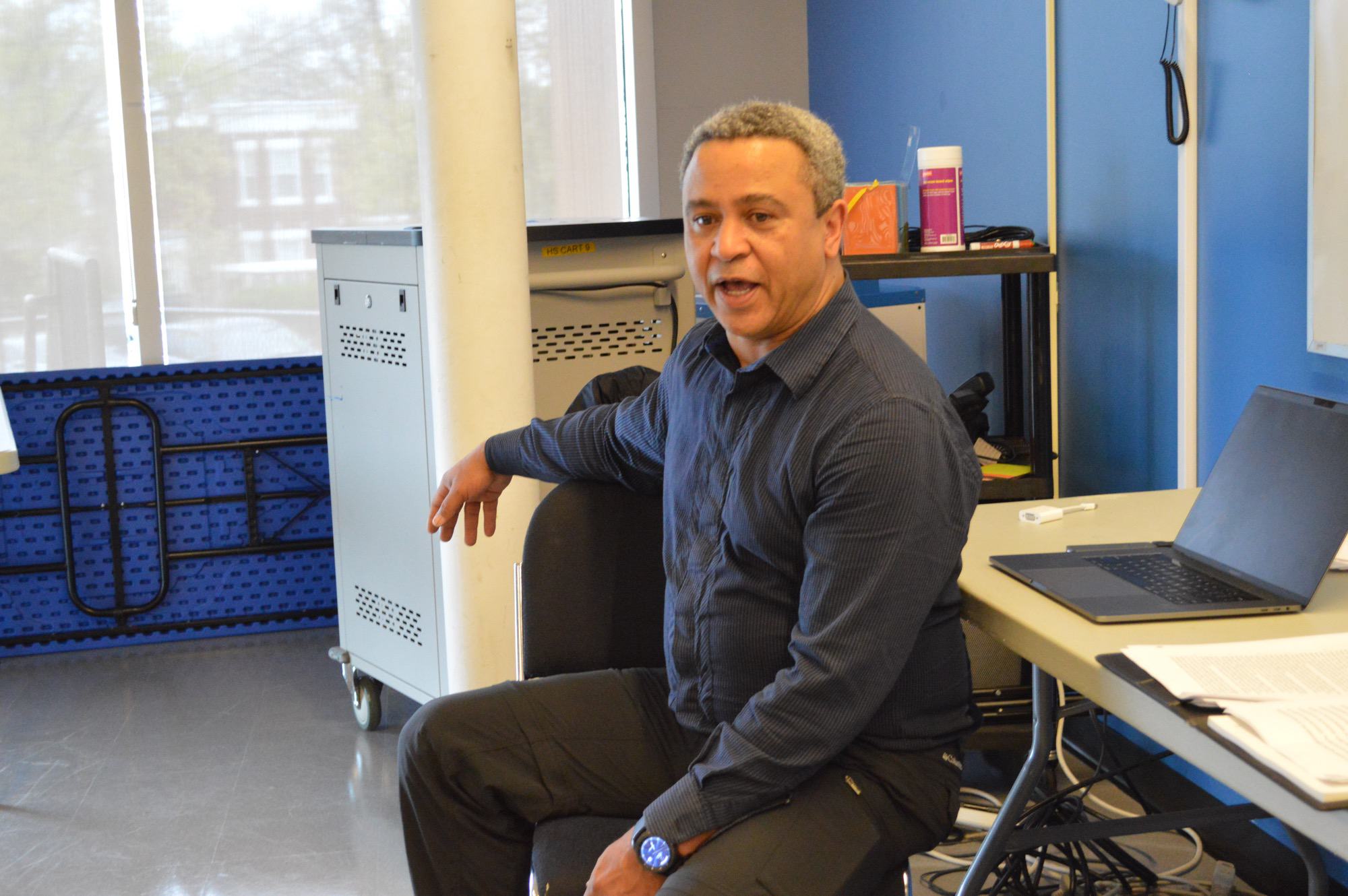
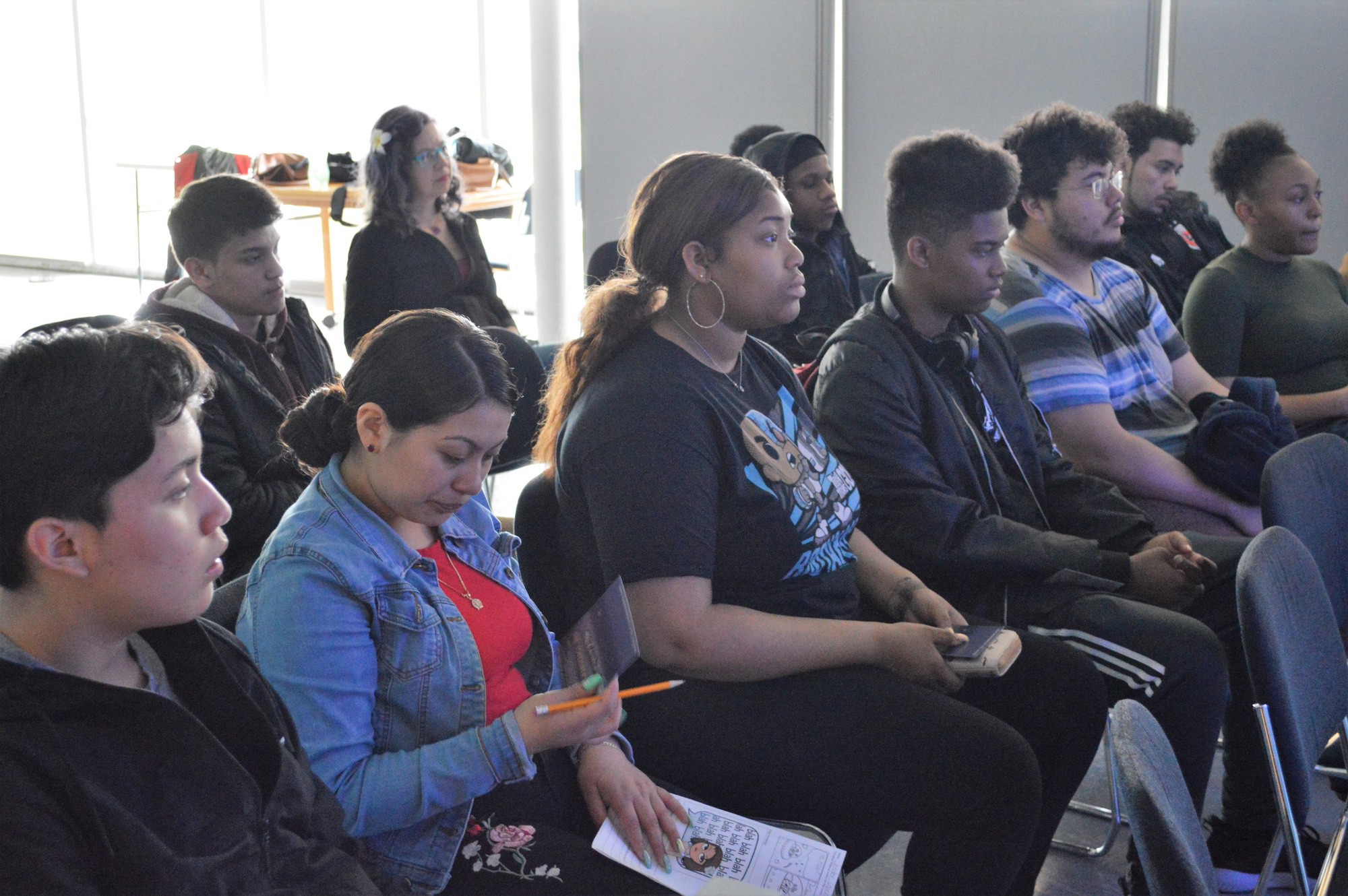
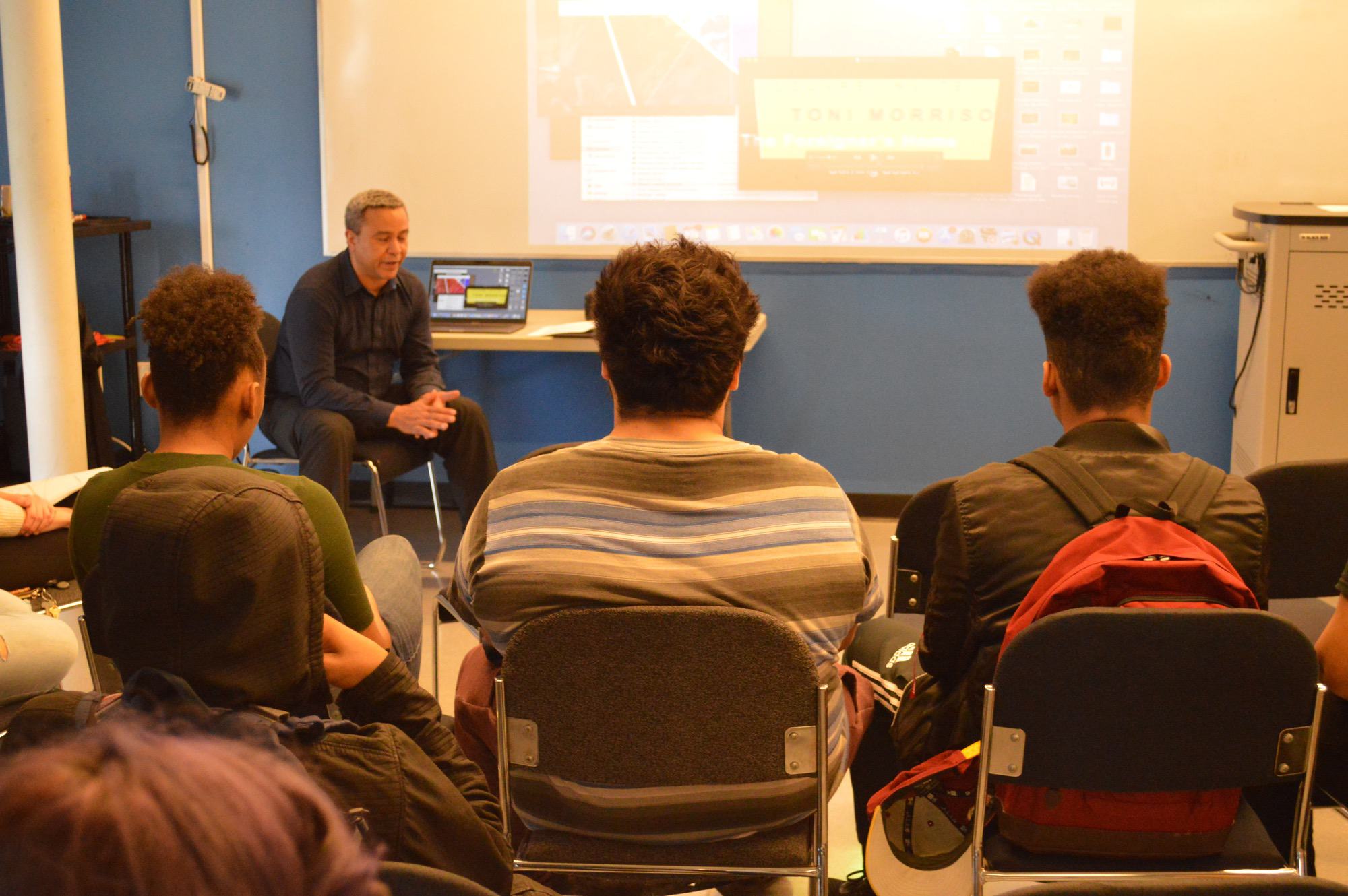
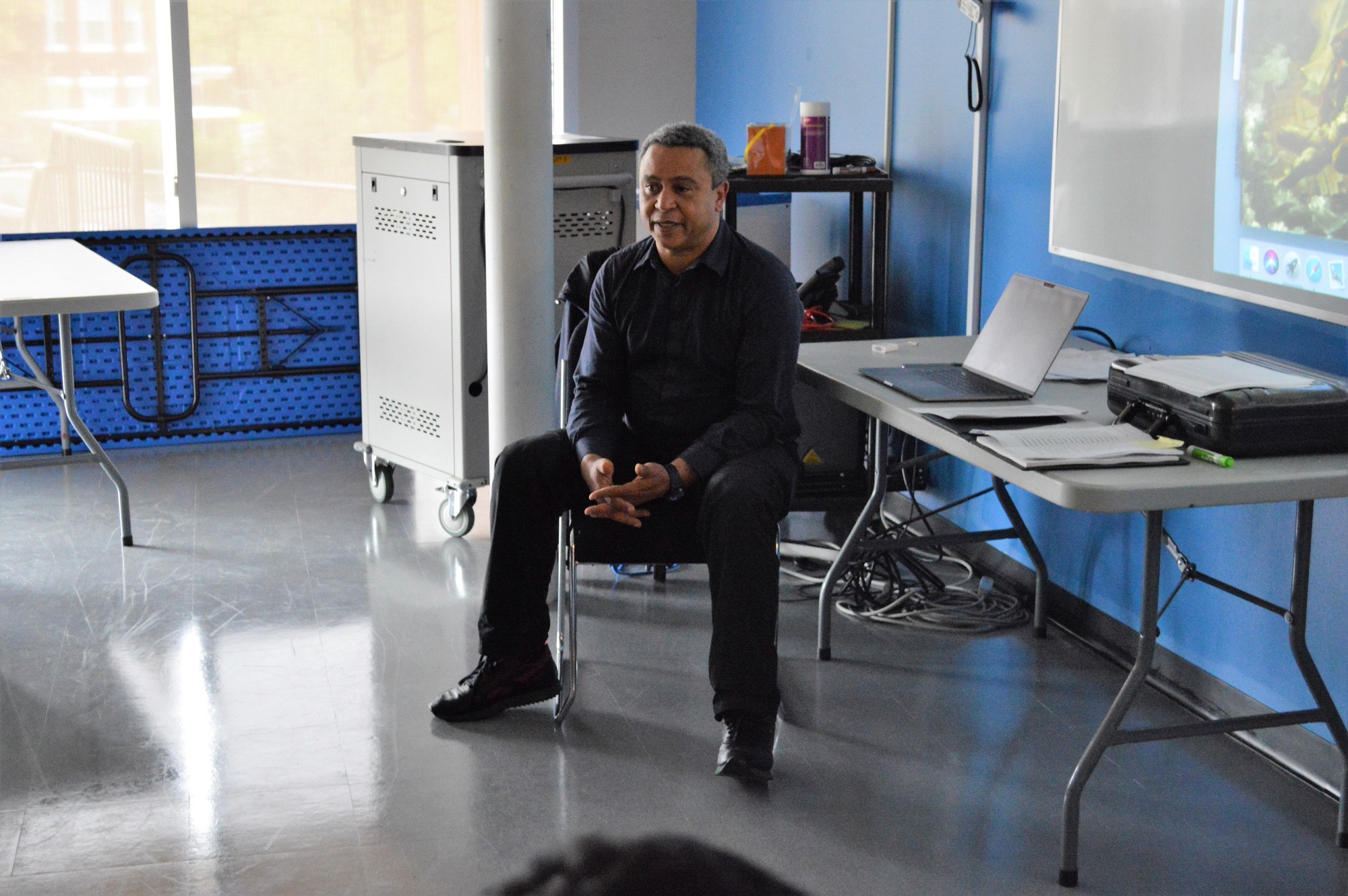
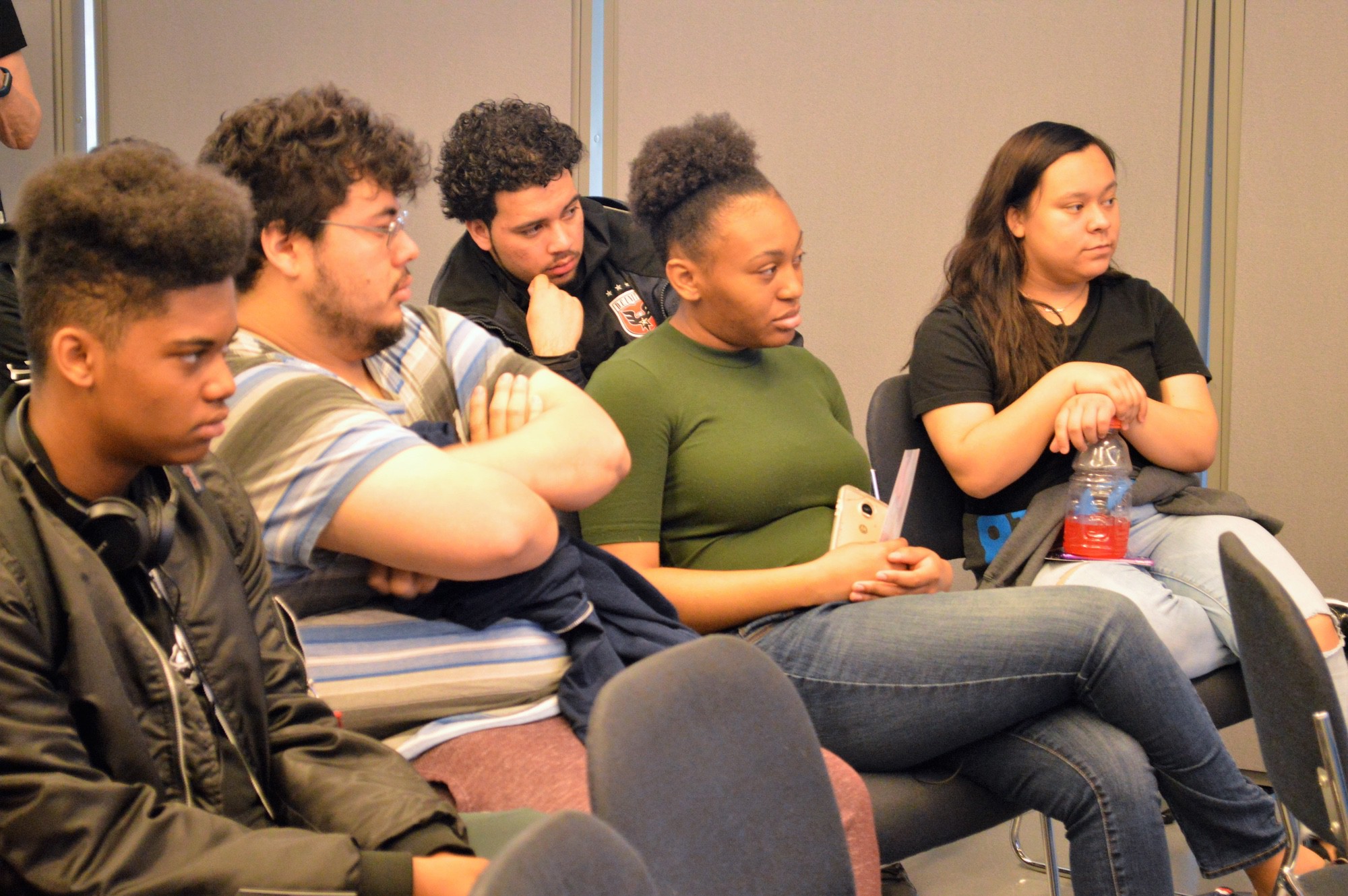
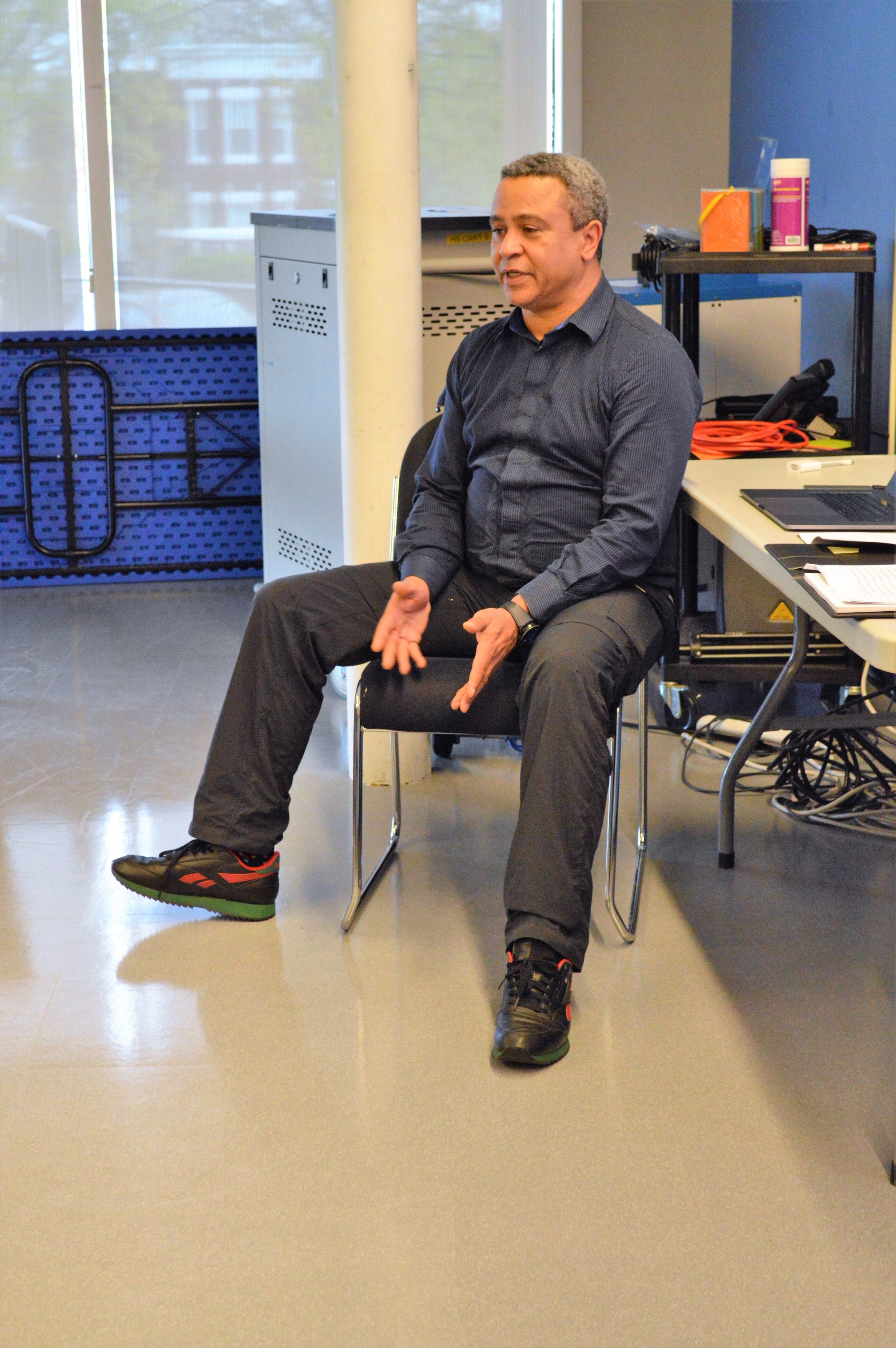
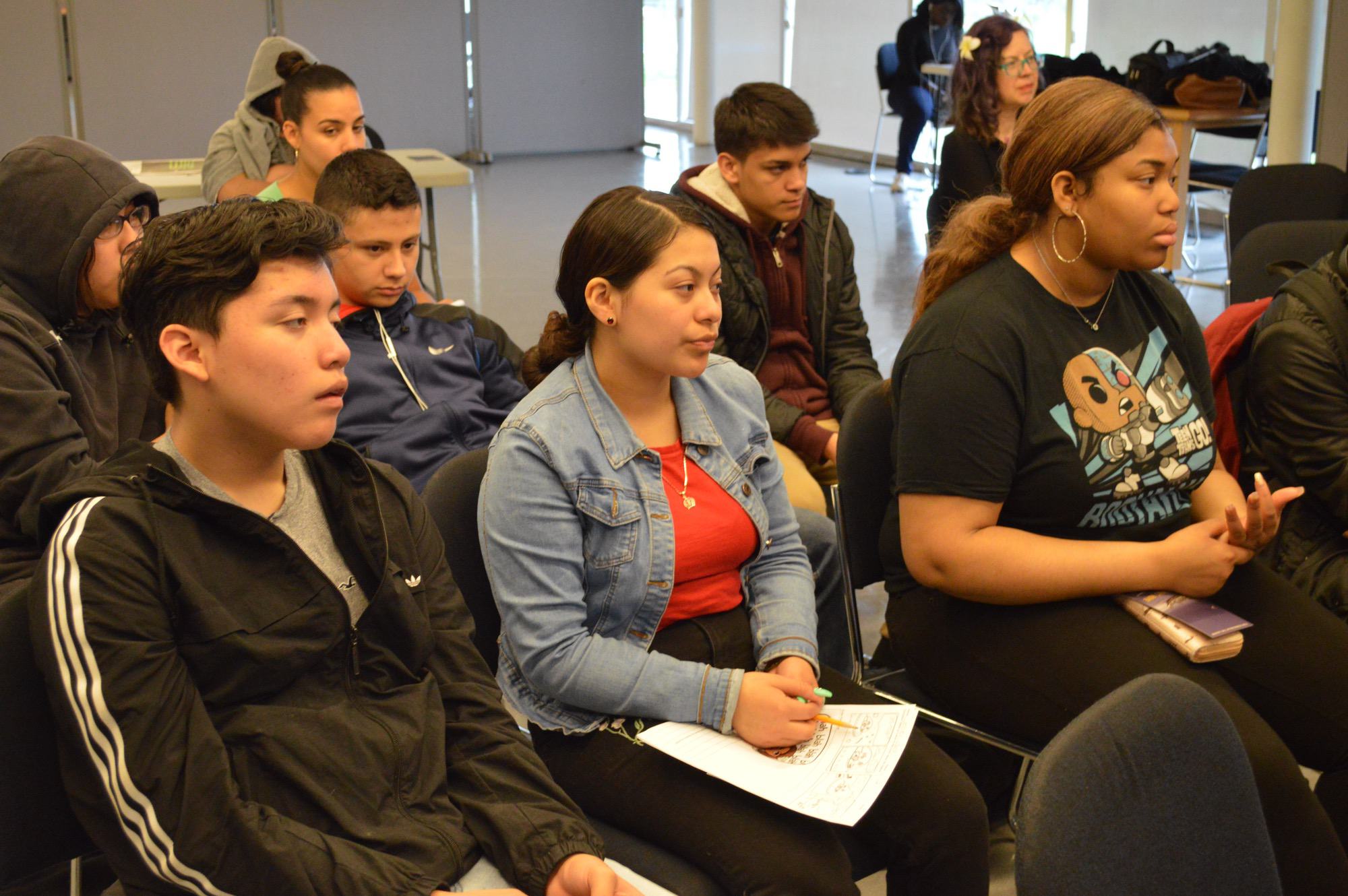
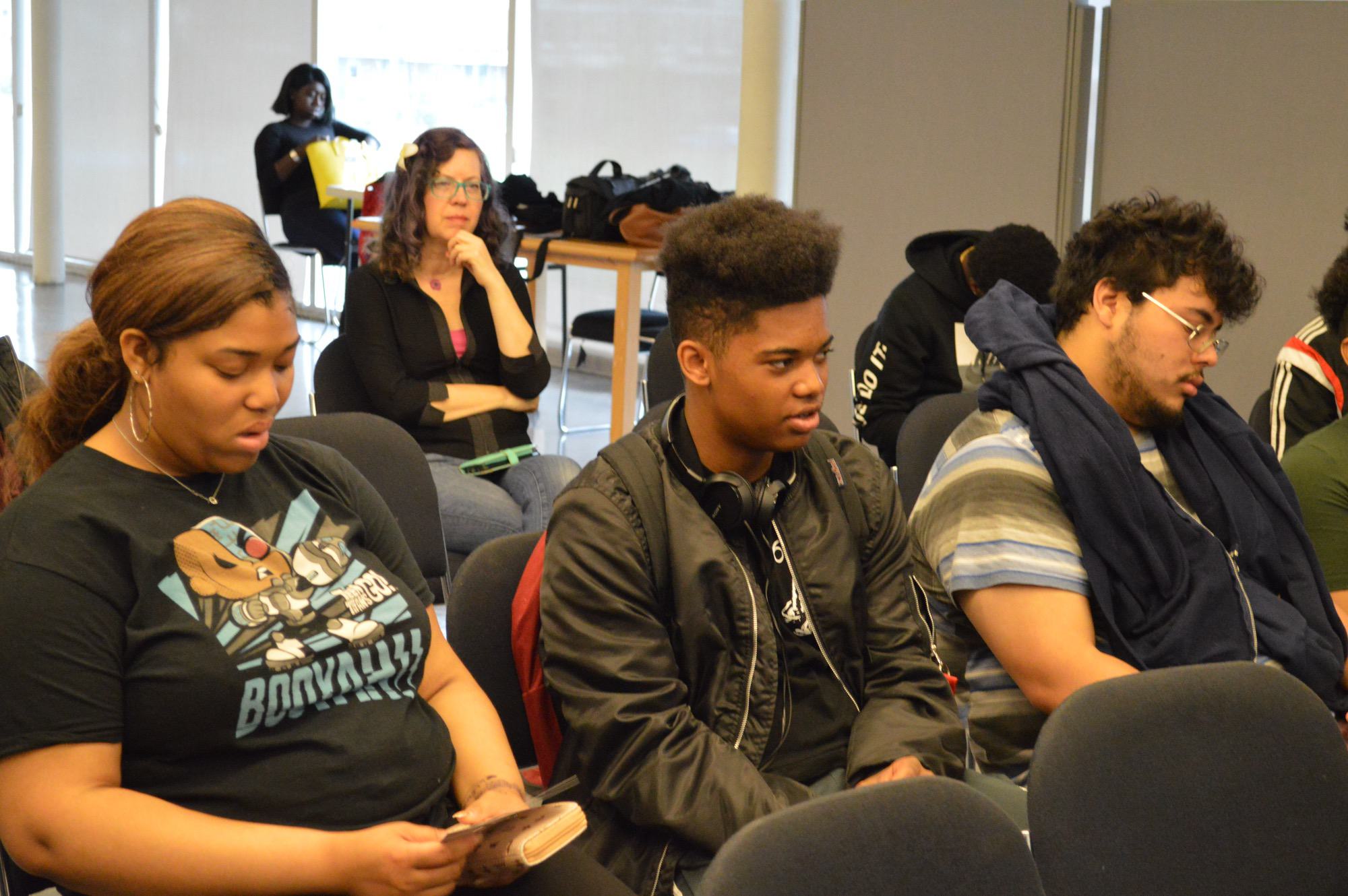
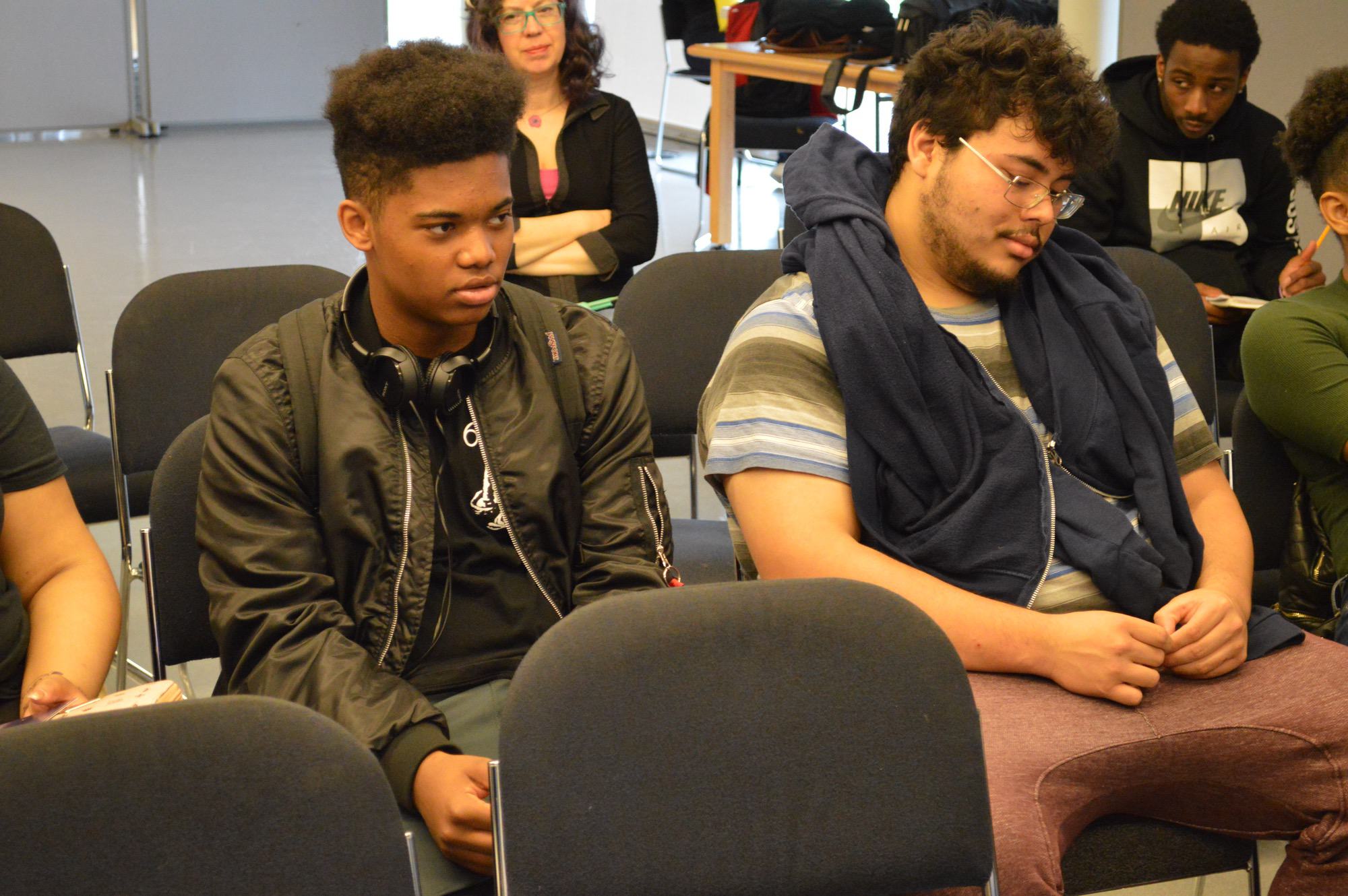
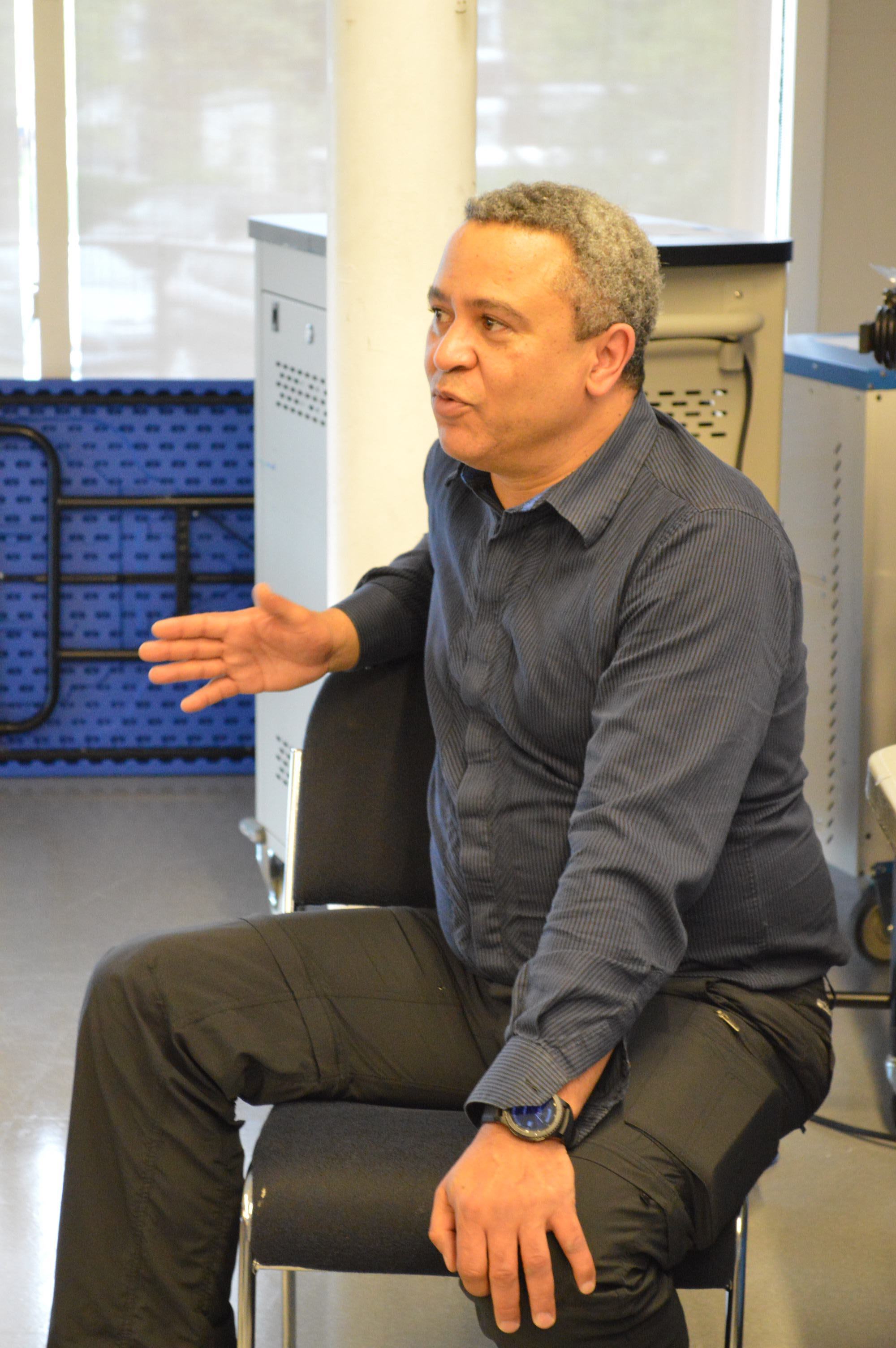
Queens in Training at Whittier Education Campus
Queens in Training is a documentary short that profiles 7-year-old Sienna and 11-year-old Bendu as they prepare to compete in a citywide chess tournament. The two girls are members of Chess Girls D.C., which teaches girls to compete in the high pressure environment of tournament play. The film's directors Deanna Del Ciello and Anna Molinaro visited Victoria Pearson's seventh grade classroom at Whittier Education Campus. This visit demonstrated the importance of incorporating stories, films, and content that is reflective of the student population. Ms. Pearson’s class was inspired by the story of two African-American girls from D.C. who demonstrated perseverance and commitment even in the face of failure. One student shared that her favorite part of the film was the end because she learned it is important to keep trying and to never give up, even when something is hard and you do not reach your goal at first. Several students shared their excitement in seeing the Emery Recreation Center, which is featured in the film and close to their home. One student asked why the filmmakers chose to film African-American girls, and learned that the idea for the film was inspired by Erik Hollis, the director of photography, who is also African American. Erik learned about Chess Girls D.C. and was passionate about developing a film centered on African American girls playing chess, a sport that is typically associated with white men. The filmmakers hope the film will inspire other girls, especially African American girls, to play chess.
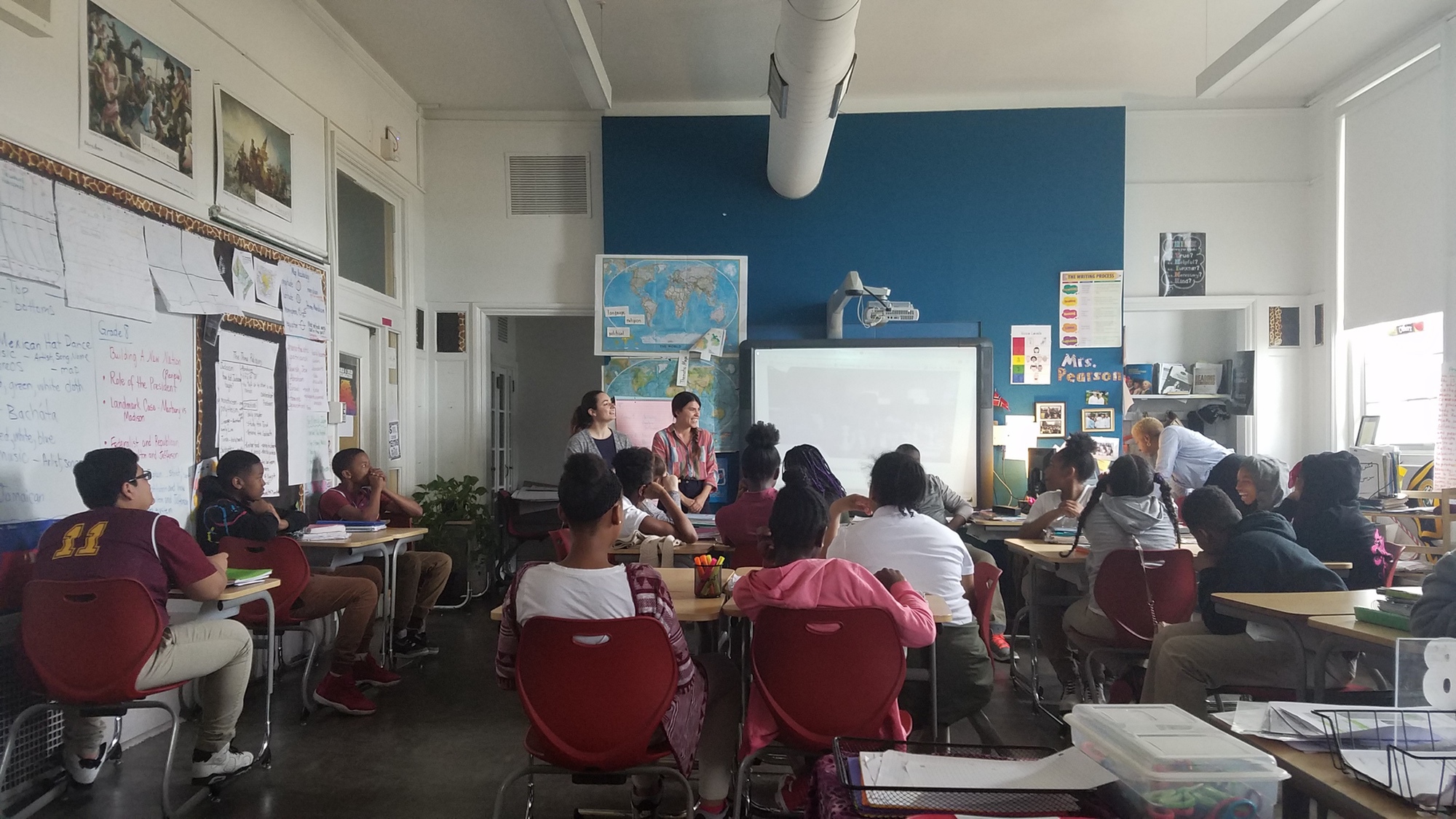
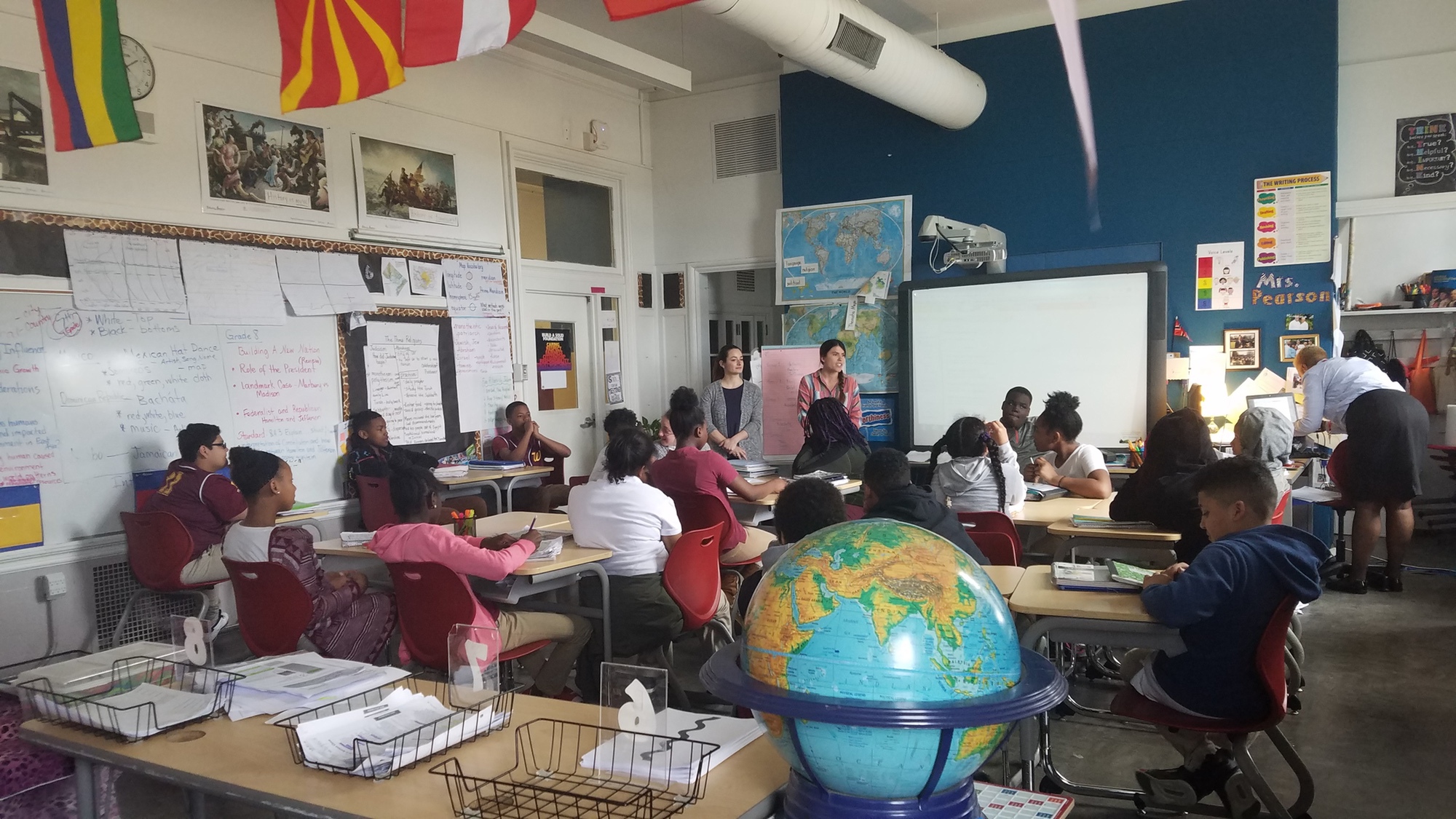
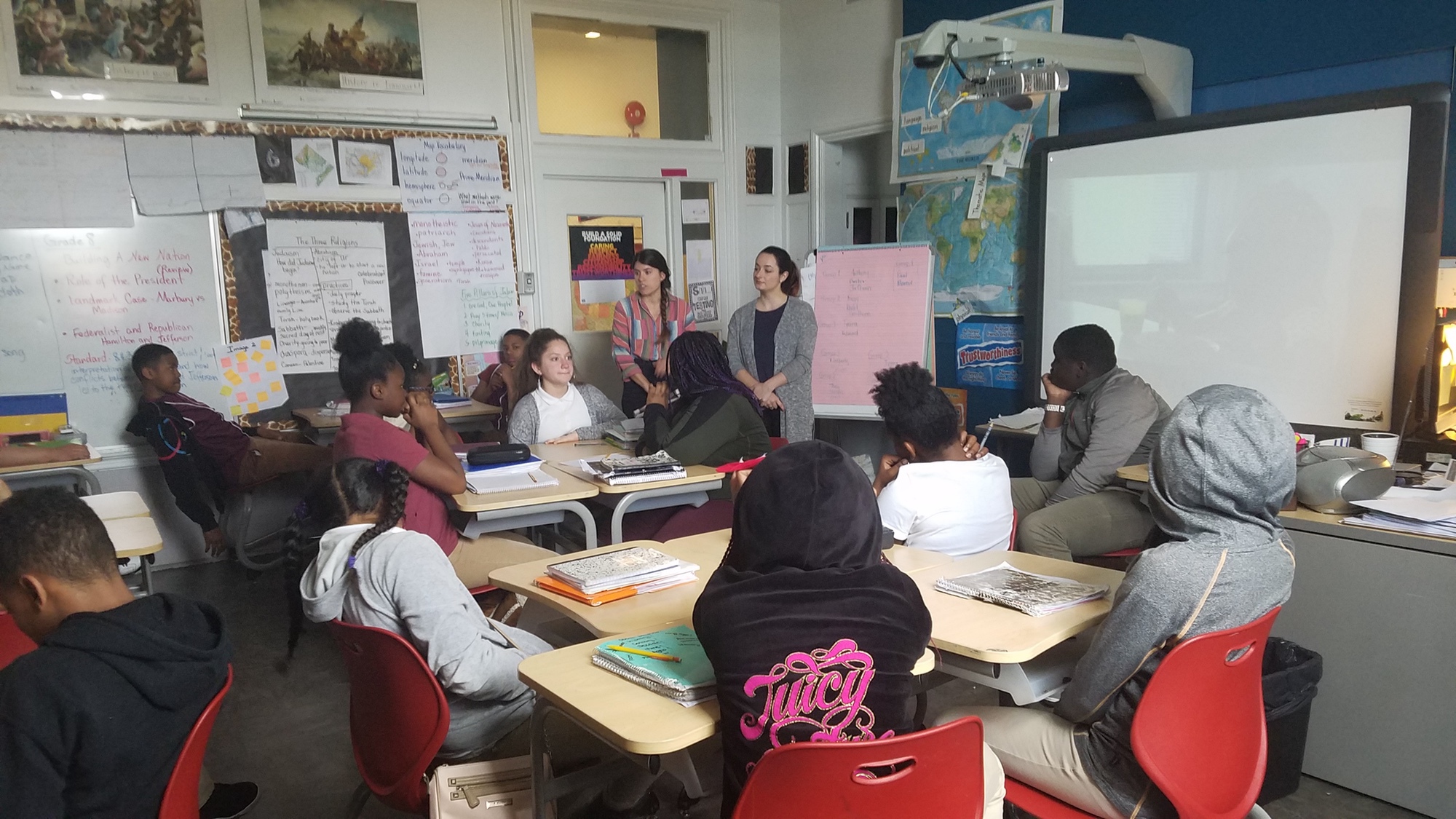
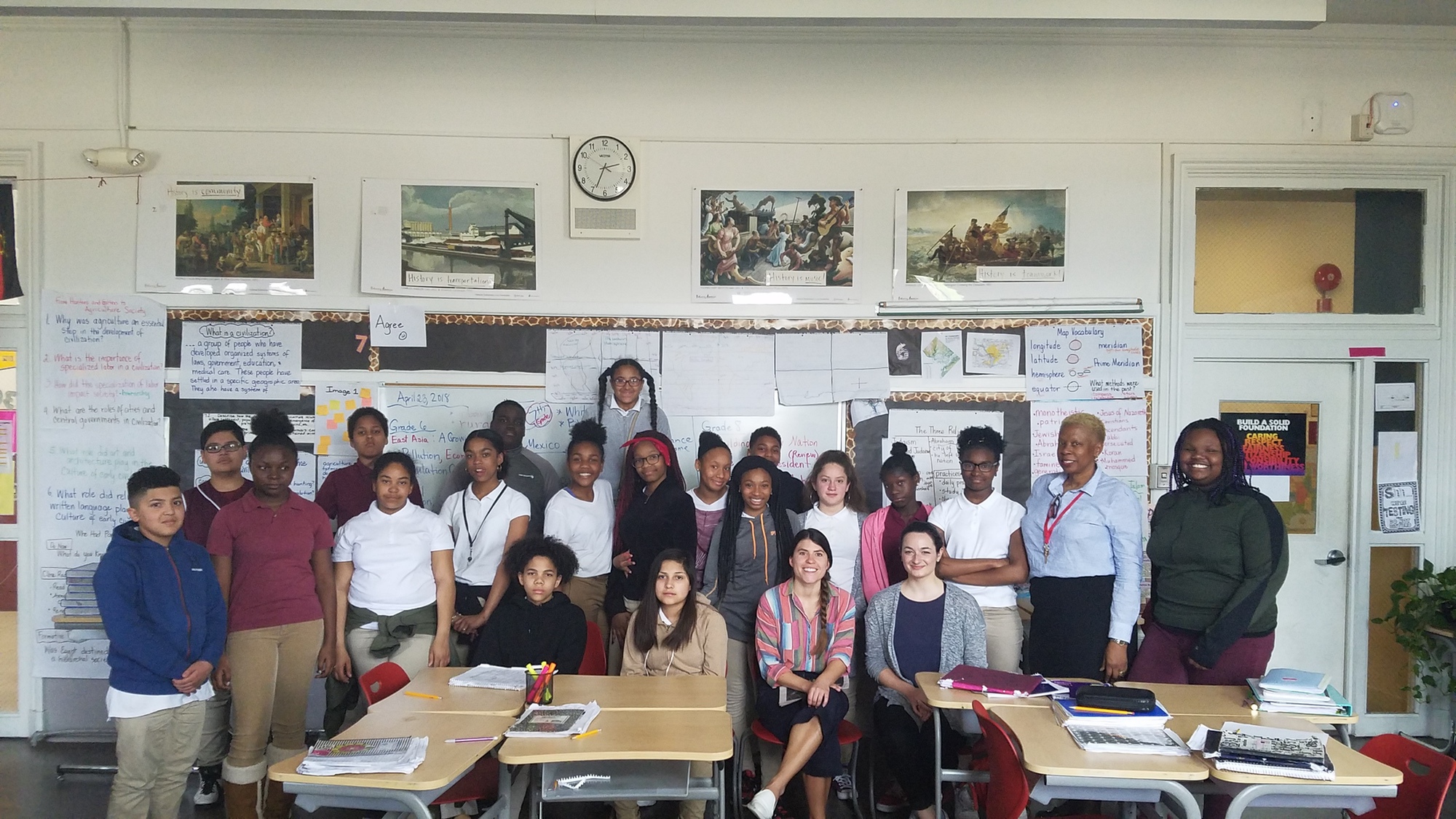
Puerto Rico: Citizens in Peril at Brightwood Education Campus
In September 2017 Hurricane Maria swept through the Atlantic Ocean, barreling through the island of Puerto Rico, and causing unprecedented damage across the region. This short documentary, Puerto Rico: Citizens in Peril, explores the socioeconomic devastation left in the aftermath of Hurricane Maria through its attempts to document the environmental, economic, and emotional tolls of this catastrophic storm.
In preparation from a classroom visit from film editor Alex Rubenstein, Brightwood Education Campus sixth grade teacher Shakera Oliver assigned her students a research project on Puerto Rico. Students were divided into groups and given one of the five topics to investigate:
Education in Puerto Rico
Debt: What is its impact?
Hurricane Maria and Climate Change
Island Utilities: Electricity and Water Challenges
FEMA: Decisions and Relief?
President Trump and Presidential Powers.
Each topic was accompanied by a series of questions students were expected to address in a poster presentation, which required visual aides, data, and cited evidence from credible sources. Below are a few comments Oliver’s students shared on what they learned about Puerto Rico at the start of the classroom visit.
“People lost food because of the power outage”
“The Jones Act prevented foreigners, who wanted to help Puerto Rico, from entering the country”
“Puerto Rico is 73 billion dollars in debt”
“Puerto Rico did not have any resources after the hurricane”
Students in Olivers class also developed vetted questions to ask the filmmaker during the classroom visit. Some of the students' questions included;
Did you help people while you were there?
Did you make this film to show people the damage of Hurricane Maria?
Was it difficult speaking to Puerto Ricans?
How did you get your facts?
What impact (negative or positive) did this film have on Puerto Rico?
Although Mr. Rubenstein did not go to Puerto Rico with Rich Henrich and Daniel Seymour who are the writers, directors, and producers of the film, he nonetheless shared anecdotes to answer the students' questions. One story in particular struck a chord with students. Mr. Rubenstein told students of a homeless man, who was not homeless before the hurricane, and had not spoken to his family in forty days. Rubenstein asked students, "Who would be the first person you call if you had not spoken to your family in forty days?" Many students shouted “My mom!” The homeless man used the filmmakers' cell phone to call his mother but only reached her voicemail. Upon hearing her voice, the homeless man wept and finally left a message stating he was alive. A few days later his mother called back, but unfortunately the filmmakers were already on their way to the airport and could not deliver the message to the homeless man. Ms. Oliver asked students to share their reactions to the film. One student expressed his frustration with the Trump administration and the Trump family. He said, “Trump is rich and so are his sons, his family could have sent Puerto Rico aid.” At the end of the class, students expressed that they saw a need for new laws regarding Puerto Rico and for President Trump to advocate for Puerto Rico.
Puerto Rico: Citizens in Peril at West Education Campus
The classroom visit at West Education Campus with Puerto Rico: Citizens in Peril film editor Alex Rubenstein started with students reading aloud letters they wrote on what they learned about Puerto Rico.
“The film made me want to help Puerto Rico. The film made me sad.”
“I learned people need food, water, and electricity. I feel sad I wish I can help people.”
Students then asked questions and the resounding theme was one of compassion as each student asked about how to help Puerto Rico. Mr. Rubenstein shared with students that the filmmakers went to Puerto Rico with the organization Ayuda Para Montana. The intention was to bring a shipping container that had donations of food and water. However, because of certain laws requiring a tax be paid to the donations they were unable to distribute the materials. Mr. Rubenstein asked the students, what rule can we change to make it easier to help Puerto Ricans? In response, one student referenced the temporary lift of the Jones Act, “Change the rule that says Puerto Rico can only get help for ten days. They should have been able to get help for ten months!”
DC Students attend LunaFest
By Yolanda Whitted
I teach in Southwest, DC and many of my students are from wards 6 (the part that isn't gentrified yet), 7, and 8. My students and I brainstormed what they could do to change others' perceptions of them. When my students and I had the idea that they should express themselves through cinematography to challenge many of the negative stereotypes about their neighborhoods in DC, I wanted to show them what a short film looked like and how to tell a compelling story.
Thanks to the DC International Film Festival, we received complimentary tickets to LunaFest, DC. This was important because nearly all of our films were written by girls who needed to understand the power of their voices as well as how important they are to the overall narrative of Black DC. My girls went in skeptical and came out empowered (so did all of us woman chaperones—it was the best and most important field trip I've done this school year). For weeks afterwards, they shared the LunaFest films with other students who were unable to attend.


